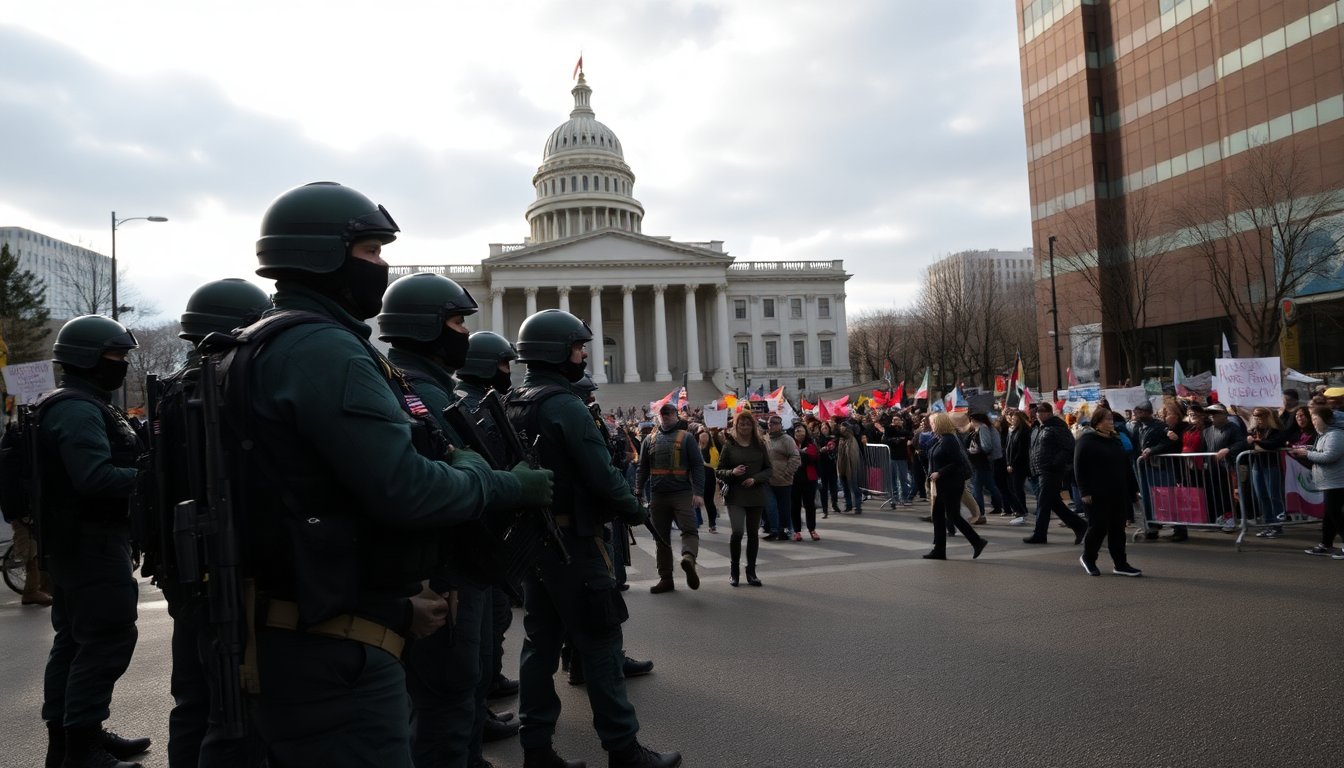Table of Contents
President Donald Trump announced via social media that he will deploy military forces to Portland, Oregon, describing the situation there as “war ravaged.” This decision aims to counter what he labels as “domestic terrorists” threatening federal properties, particularly those managed by U.S. Immigration and Customs Enforcement (ICE). This move reflects an extension of Trump’s controversial military presence in various U.S. cities.
In his announcement, Trump directed the Department of Defense to mobilize necessary troops to protect federal assets. He stated that these federal locations face substantial threats, linking the unrest to groups like Antifa and other so-called domestic terrorists.
Political reactions and community concerns
The political response to Trump’s announcement has been fraught with tension. Oregon’s Democratic Senator Jeff Merkley warned of potential chaos resulting from the federal military presence, advising citizens against provocations. He stressed the need for peaceful expression, cautioning that interactions with federal troops might provoke unnecessary conflict.
Historical context of protests in Portland
Portland has been a hotspot for protests, particularly following the tragic death of George Floyd in 2020, which sparked widespread calls for racial justice. The city has experienced a cycle of unrest and federal intervention, with Trump previously deploying agents to protect federal properties, including courthouses. This history raises concerns about the implications of the current military deployment for community relations.
Local leaders, including Portland’s Mayor Keith Wilson, have expressed discomfort with the federal presence. Wilson noted that the city did not request military support and described the arrival of armored vehicles and agents as unwarranted and lacking clear objectives.
Recent events leading to military action
Trump’s announcement comes after a shooting incident at an ICE facility in Dallas, resulting in one detainee’s death and several injuries. This event may have heightened the administration’s urgency to enhance security in cities experiencing social unrest.
Current state of protests
While recent protests in Portland have been less intense than in previous years, tensions remain high, particularly near the ICE facility. Federal agents have reported injuries from confrontations, and multiple protesters face charges. The atmosphere remains charged, with accusations of escalation from both sides.
Efforts from city officials and community groups have emerged to highlight the gradual recovery of downtown Portland since the peak of protests in 2020. Recent reports indicate an increase in pedestrian activity and a notable decrease in violent crime rates. This suggests that as federal responses intensify, the community is also working towards healing and rebuilding.
Looking ahead: The National Guard and future deployments
Trump previously suggested the potential deployment of the National Guard to other cities, including Chicago, although these actions have not yet occurred. The deployment in Memphis, Tennessee, will reportedly involve around 150 troops, a significant reduction compared to earlier large-scale operations in cities like Washington D.C. and Los Angeles.
In an earlier statement, Trump indicated that a substantial operation targeting “professional agitators and anarchists” in Portland was imminent. His comments reflect an ongoing narrative attributing the nation’s issues with political violence to the “radical left.” As tensions persist, the deployment of federal troops raises critical questions about governance, civil liberties, and the future of protests in America.


